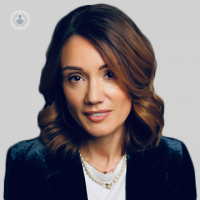Why bullying matters
Autore:Children who have been bullied at primary school age are more likely to be bullied as a teenager, and be victimised later on in life as an adult. The World Health Organization has called for further research into bullying stressing the seriousness of consequences for all individuals who are affected by it. Maite Ferrin, a child and adolescant psychiatrist at Re:Cognition Health in London, explains to us why bulling prevention is important and the reasons why children bully others.

Why does bullying matter?
Bullying can have serious consequences on those who are affected. A study by Takizawa in 2014, showed that those subjected to bullying at any age are more likely to experience a range of poorer health and social outcomes including lower self-esteem, poorer mental and physical health, poorer adult relationships and lower educational attainment. In addition, they are also more likely to exhibit anti-social behaviours and are at increased risk of deliberate self-harm and attempting or, sadly sometimes, committing suicide.
How common is bullying?
According to the UK Millennium Cohort Study in 2019 which used data from 5,857 children, about half of the children reported having been bullied by the age of seven.
Interestingly, there was a clear social gradient with children living in the lowest income households, which showed a 20% greater risk of being bullied compared to those from the highest income. This is partially explained by differences relating to their social network, family relationships and also by the child’s own abilities and behaviours to manage the conflict. Children with special needs and vulnerable children are more likely to suffer bullying.
What is bullying?
Bullying has been defined by three characteristics:
- The intention of the aggressor to cause harm to the victim.
- The imbalance of power created due to the aggressor being physically stronger and/or having more social power than the victim.
- The repetition of the acts of bullying. This means that the act of intimidation takes place when an individual, or a group of individuals, is exercising dominance over another person who is deemed to be weaker, and causes repeated and intentional harm to that individual.
The act may not be violent, however it does inflict a negative impact on the victim. These acts typically occur in the victim’s environment, which is usually the school. However, cyberbullying is a modern form of bullying which seems to be increasingly more frequent.
Cyberbullying has already been considered a serious public health threat and elicited warnings from the Centers for Disease Control and Prevention in the USA. Tokunaga defined the phenomenon in 2010 as “any behaviour performed through electronic or digital media by individuals or groups that repeatedly communicates hostile or aggressive messages intended to inflict harm or discomfort on others”.
Common forms of cyberbullying involve mobile phones, through the use of calls and texts, or over the internet by emails, chats, instant messaging, websites, blogs, etc. The impact of cyberbullying can be devastating because of the immediate effect and because the victim is exposed to a much broader public.
Why do children bully other children?
There are a number of factors associated with these behaviours, including personal, cultural and family factors.
Children who have witnessed domestic violence or suffered bullying in the past are at a higher risk of becoming perpetrators. Children with learning difficulties, autism, or those who struggle to forge social relationships can also feel peer pressure to bully other kids in order to be accepted within a group.
In addition, it has been demonstrated that kids who bully others are also more likely to suffer from mental health problems themselves, such as anxiety and depression. Therefore, parents should never disregard or minimise when their own child has displayed these behaviours.
Visit Maite Ferrin’s profile on our website to arrange an appointment.


